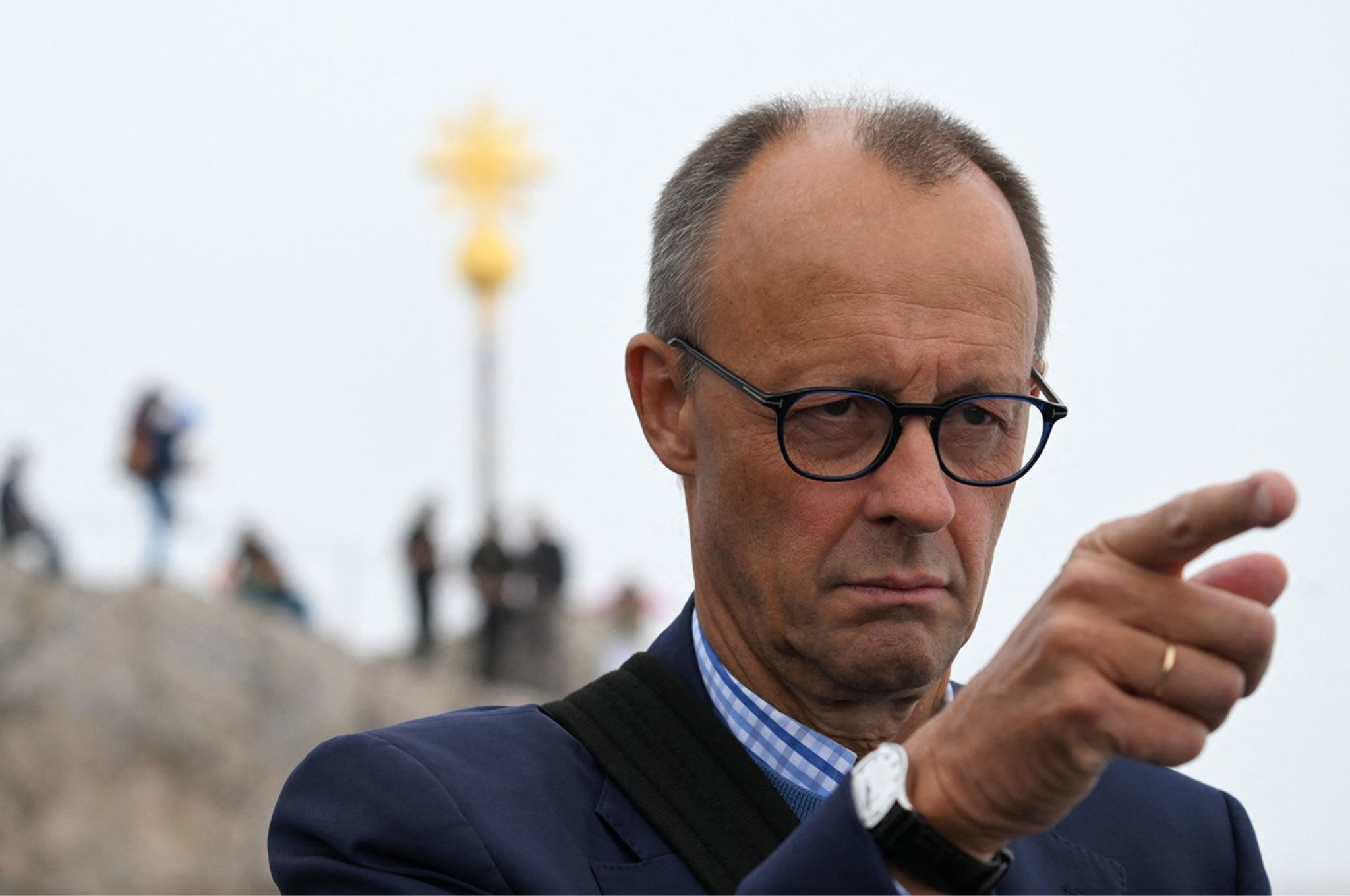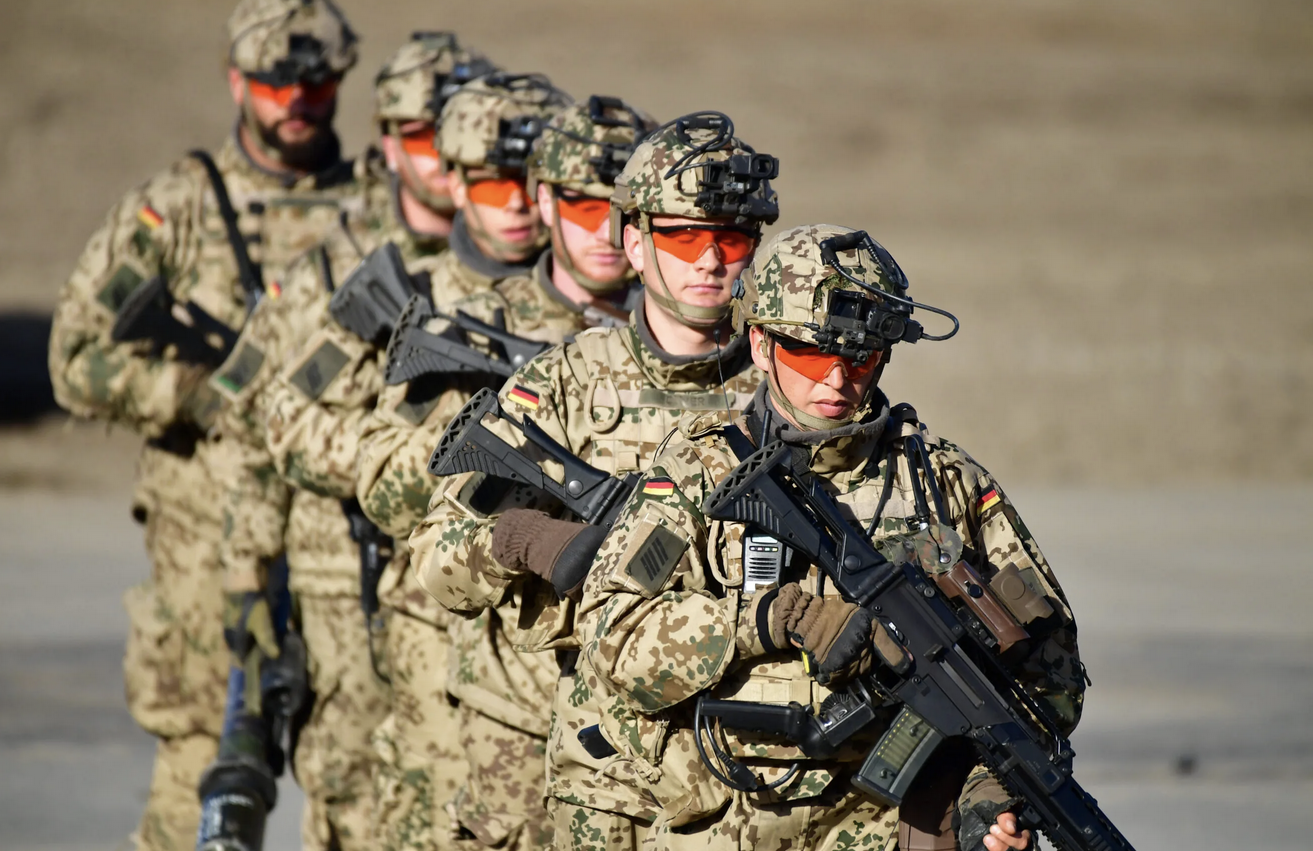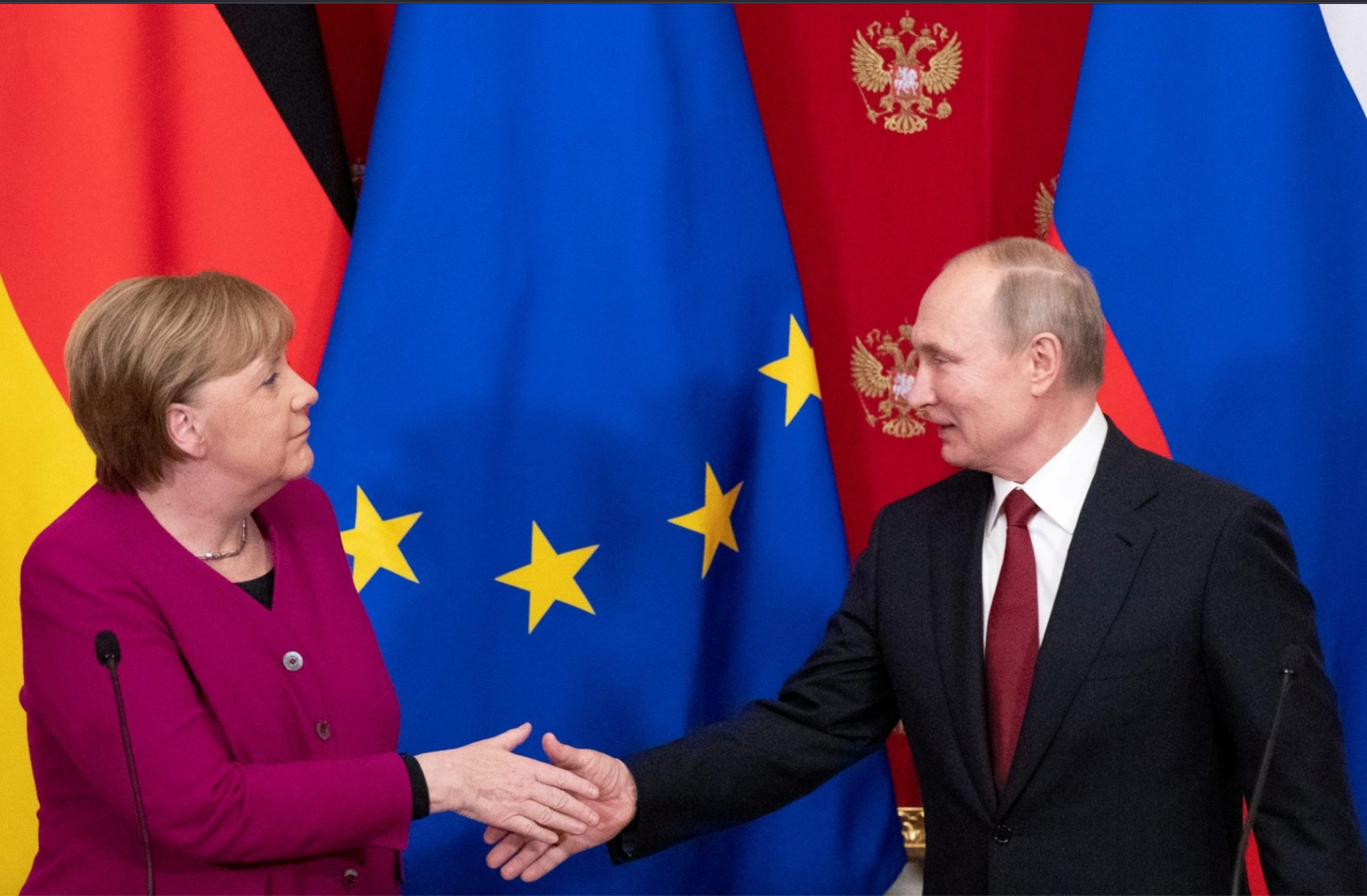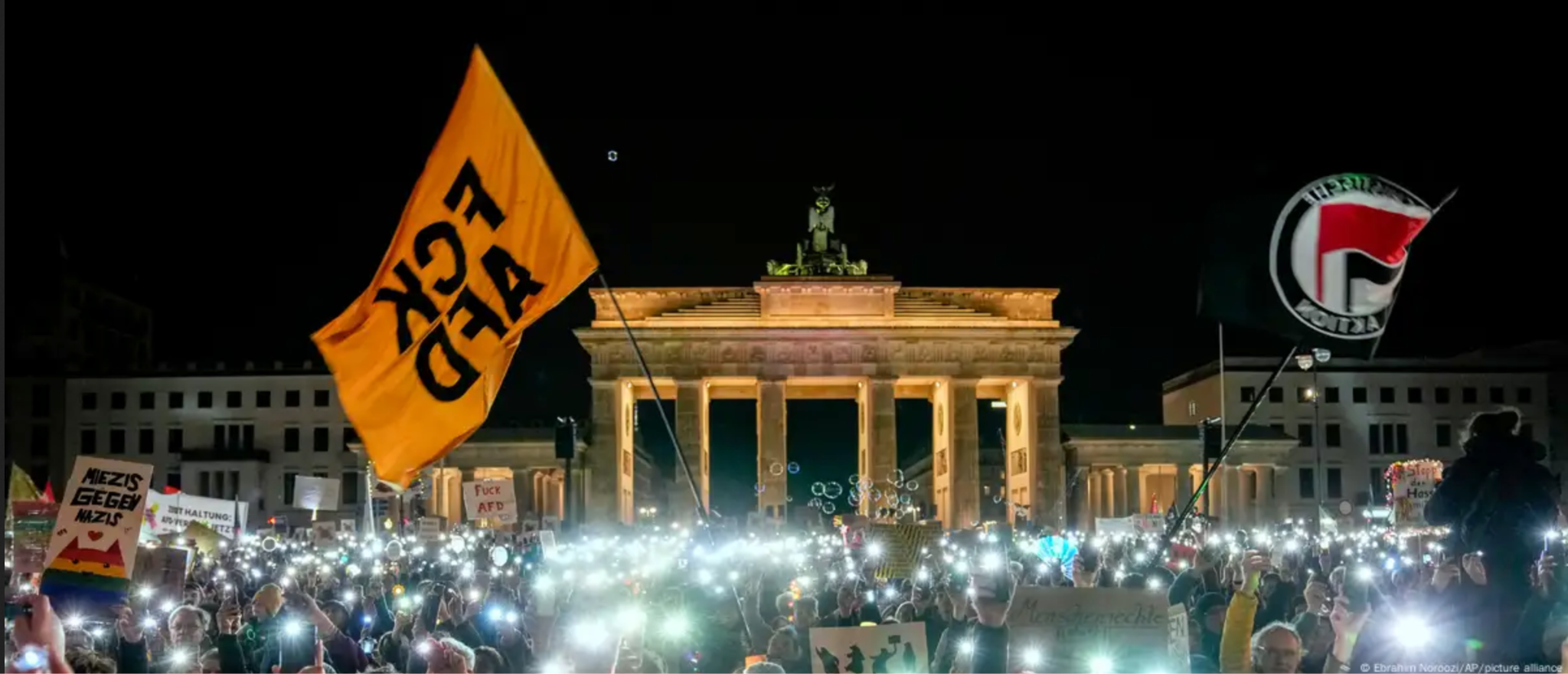On February 27, 2022, Chancellor of Germany Olaf Scholz addressed the Bundestag and fundamentally altered Germany’s role in Europe. Russia’s reinvasion of Ukraine three days prior had sparked shock and outrage in Berlin, who’s previous Ostpolitik approach to Russia was suddenly proven ineffective. Ostpolitik dates back to West German efforts to normalize relations with East Germany, with the end goal of incentivizing Soviet bloc countries to accept their trade, and through trade, change. This change did not occur, and Russia proved it was not interested in an international rules-based order, or in staying in the good graces of the West. When Russia annexed Crimea in 2014, the response was muted. Angela Merkel, the Chancellor at the time, insisted that there was “no military solution” to the crisis. She was determined to hold on to the post 1991 world order, in which Ostpolitik was the prevailing policy, with warm ties to the US, and non-aggressive ones for Russia. Wandel durch Handel, Change through Trade, was thought to be the most effective way of calming a seemingly imperialism-inclined Russia. The invasion shattered this idea. The result was the Zeitenwende, the turning point of Germany’s role in Europe.
In his iconic speech, the Chancellor proclaimed “The twenty-fourth of February 2022 marks a watershed in the history of our continent.” Now, Scholz claimed, it was Germany’s time to “...accept the challenge that now faces us – with clear-headed resolve.” To do this, Scholz outlined key courses of actions Germany must take:
With this, Berlin planned to take a more active role in European defense, a complete departure from previous policy. Two weeks prior, the German foreign minister, Annalena Baerbock, had appeared at the Munich security conference to warn that the crisis should not lead to an 180-degree turn on the decades-old German policy banning the sale of arms into conflict zones. On the eve of the invasion, Baerbock gave an interview saying Germany could not impose the strongest sanctions possible because of “the massive collateral damage” to Germany’s own economy. Putin could end up laughing at us, she warned. So great was the umbrella of Ostpolitik, Germany refused to believe the American and UK intelligence reports indicating an invasion was imminent.
With the death of Ostpolitik and introduction of “Frostpolitik”, and in the wake of a bipolar POTUS, Germany has shifted its views on defense, and its own role in the Franco-German engine which powers Europe. Now, three years since the declaration, has the Zeitenwende been fulfilled? With Friedrich Merz replacing Scholz, what will that mean for the new defense goals? And what does the future of Europe look like with a rearmed Germany taking center stage?
The first question to be asked should be: “How well was Zeitenwende implemented?”. Support amongst Germans reached 78% for the new policies, but some critics such as Benjamin Tallis of International Politik Quarterly said "Zeitenwende is here, it's just unevenly distributed”, a reference to William Gibson’s famous quote. Later, though, he grew more fierce, saying “Germany’s Zeitenwende has failed.” Zeitenwende support has certainly waned, and the popularity of parties like Alternative for Germany and The Left show an increasing shift in German perception of the war. However, the incoming chancellor Friedrich Merz has been clear and vocal in his support for Ukraine, and continuation of Zeitenwende policies. With the debt brake finally gone, it is clear Germany is looking to establish a long term safety net within Europe, and set the example for other EU countries to follow.
 Friedrich Merz gestures during an interview in front of Germany's
highest mountain, Zugspitze, before the conference of the Christian
Democratic Union party on Sept. 1, 2022. Christof Stache/AFP via Getty
Images
Friedrich Merz gestures during an interview in front of Germany's
highest mountain, Zugspitze, before the conference of the Christian
Democratic Union party on Sept. 1, 2022. Christof Stache/AFP via Getty
Images
If we compare the infamous 5,000 helmets to today, it is clear Berlin has made great strides in its stated goal. Germany is now the largest European supporter of Ukraine, and third in the world, behind the US and the EU as a whole. A bilateral security cooperation agreement with Ukraine was signed, with Germany pledging to support long-term development of Ukraine’s security sector, as well as providing cybersecurity and intelligence support. Germany has accepted more Ukrainian refugees than any other country in the EU, 1.14 million. It has become a major supplier of weapons, including but not limited to: 619 reconnaissance VECTOR drones, 9 Zuzana 2 wheeled self-propelled howitzer, 269 Mine Resistant Ambush Protected Vehicles, 16,917 RGW 90 man-portable anti-tank weapons, and of course, 58,000 combat helmets.
However, lingering concerns over Germany’s past has still prevented it from being too forward leaning in supplies. It has not sent any Taurus long-range cruise missiles to Kyiv (though equivalents like the UK’s Storm Shadow and France’s SCALP have been), and has refused to allow German weapons to be used to strike inside Russian territory. Some critics argue the German government still fears escalation with Russia, and that Berlin has allowed the Kremlin to bully them.
With Trump threatening to pull out of Ukraine completely if no progress is soon made, Germany now has a burden of responsibility to lead the effort to defend Ukraine. It can no longer completely rely on America to assist, and it seems increasingly likely that the Franco-German engine will be powering Ukraine’s security without transatlantic help. Merz has said he would do "whatever it takes" to protect peace and freedom - referencing Mario Draghi's vow to save the euro in 2012. In a debate during his campaign, he said "I have absolutely no illusions about what is happening from America. Just look at the recent interventions in the German election campaign by Mr. Elon Musk — that is a unique event. The interventions from Washington were no less dramatic and drastic and ultimately outrageous than the interventions we have seen from Moscow. We are under such massive pressure from two sides that my absolute priority now really is to create unity in Europe." Merz is aware of the potential death of NATO, and what that could entail as a leader of Europe’s largest economy. The current cooperation only worked as it did because Washington and Berlin agreed on the overall outline of their role.
Zeitenwende has killed Ostpolitik, but like a cheesy horror movie villain, it could always rise again. Rising isolationist tendencies in both countries are on the rise, and as the war drags on, more and more voices will begin to lose sight of the benefits of assisting Ukraine. They will call for a resumption of Ostpolitik, as decades of Russo-German relationships have not simply disappeared. Rising concerns over the reliability of the US may lead Germany more into the arms of its once alternative partner. With Merz taking a strong stance on Ukraine, and an even stronger one against Trump, it is clear that, at least for now, Germany will continue to be a world leader in Ukrainian assistance.
The Zeitenwende speech brought back two key terms in the German consciousness, landesverteidigung and bündnisverteidigung, national and collective defense. In the first defense guidelines, Scholz and his traffic light coalition stressed that these must once again be the core task of the Bundeswehr. The Bundeswehr suffered from chronic underfunding and taboo since the end of the Cold War. Indeed, German President Horst Köhler resigned in 2010, after receiving heavy backlash for saying: “...a country of our size needs to be aware that where called for or in an emergency, military deployment, too, is necessary if we are to protect our interests such as ensuring free trade routes or preventing regional instabilities which are also certain to negatively impact our ability to safeguard trade, jobs and income.” Since then, Germany has hit the required 2% mark of NATO, and with the removal of the debt break, will be able to have the funds necessary to hit its own goal of 203,000 personnel and full combat readiness by 2027. Those who raised concerns about long term funding sustainability will have those concerns eased.
Another factor to consider is forces and troop readiness. At the 2022 Madrid summit, NATO members agreed an updated NATO Force Model to be implemented by 2025. The Model organizes troops into three tiers of readiness and the new Allied Reaction Force for support. This new reform places heavy demands on NATO allies, and would likely require the growth of the Budeswehr’s current strength of 180,000 to beyond its own goal of 203,000. Germany has acknowledged the personnel issue, and the challenges it brings. According to the reports on internal Ministry of Defense deliberations, the requirement for NATO land forces will rise from 82 combat brigades to 131. Germany will likely need to assign 5 or 6 more brigades to NATO. Five brigades means an extra 25,000 personnel, above the current 61,000 strength of the military. At the current pace, it seems Germany will likely fail to meet this threshold.
 Since the end of the Cold War, Berlin has missed NATO’s current
defense-spending target of 2 percent of GDP for over three decades |
Alexander Koerner/Getty Images
Since the end of the Cold War, Berlin has missed NATO’s current
defense-spending target of 2 percent of GDP for over three decades |
Alexander Koerner/Getty Images
Germany also plans to station a combat brigade permanently in Lithuania, setting it apart from other NATO members. In 2023, Berlin declared it would permanently station 4,800 troops and 200 civilian employees in Lithuania. This would be the first time in German history that the armed forces would be stationed abroad without an end date. The brigade will consist of three major combat units: the 122 Mechanised Infantry Battalion from Oberviechtach, Bavaria; the 203 Tank Battalion from Augustdorf, North Rhine-Westphalia; and the NATO enhanced Forward Presence Battle Group Lithuania. The brigade is currently operational, with full capability expected by 2027. This is the surest commitment to the Zeitenwende’s goals, and shows Germany as a forward-thinking, example-setting nation for others to follow.
However, overreliance on NATO could be a double-edged sword. The American security umbrella provides safety, but an increasingly hesitant Washington has signaled that Europe must take a more active role in its own security. Chancellor Scholz has clearly shown he wants to focus more on cooperation with NATO for security, over cooperation with the EU. Germany has entered voluntary initiatives such as Permanent Structured Cooperation, and has attempted to wield financial leverage through multinational projects such as the European Defense Fund. Besides this, Scholz called for improved compatibility through an EU structure to better strengthen NATO. In the end, the Zeitenwende has not led to any systematic changes to reverse negative European defense trends. Former Italian Prime Minister Mario Draghi highlighted the fragmentation of the defense industry and the lack of collaborative industrial projects on major arms systems as major issues for the future of the EU. If the incoming Merz government wants to assert Germany as a leader of Europe, and set the example for European security independence, it will need to reevaluate its positions on NATO, and focus more on a collective European defense.
The Federal Minister of Defense, Boris Pistorius, has set the goal for making the Bundeswehr fully combat capable by 2029. With the debt brake removal, this goal seems increasingly possible, but will require a long-term, fundamental cultural shift around defense. It will need to be insulated from changing political whims, a guideline for all parties to follow. Increasing popularity for nationalist parties like AfD only further highlights the dangers. A rearmed Germany could protect Europe, and the world, but a fully revamped Bundeswehr in the hands of AfD leaders could potentially lead to leveraging military might for bullying purposes and increase the risk of war in Europe.
For decades, Russian fossil fuels have powered Germany’s industrial and economic might. Energy relations underpinned German defense strategy with Russia, not changing even after the 2014 invasion. It fueled Ostpolitik, the financial benefits incentivizing overlooking Russian crimes in favor of economic gain. This changed in 2022, when Zeitenwende forced Germany to reevaluate its reliance on Russian power. Energy constitutes a huge part of Russia’s income, and not addressing it risked undermining the objective of confronting Russian imperialism.
Russia was Germany’s primary natural gas supplier, amounting to 52% of total imports in 2021. Now, the number has dropped to 22%, with other countries such as Norway helping pick up the slack. Berlin closed a deal with Qatar for the delivery of new LNG terminals in 2026, explored opportunities with Iraq for the delivery of oil and gas. Germany is creating a new energy infrastructure, and is building a supply line to significantly reduce its reliance on Russian gas.
However, weaning lead to new issues. Volatile energy prices hit Germany hard, but it was able to shoulder the burden through energy-saving efforts, a temporary increase in coal usage and tax breaks. The cost to counter prices and curb inflation rose to around 300 billion dollars. Price increases were mitigated, but not completely prevented. Some energy-intensive companies have already left Germany, and seem unlikely to return.
Challenges still face Germany on energy security, despite it being arguably the most successful part of the Zeitenwende. Renewables are nondispatchable, and can be a problem particularly when peak demand meets weak generation (For example, a cloudy day with no wind). Renewable energy technology also creates a reliance on dominant producers, such as China, which comes with its own set of issues. Cost can also be a factor, with KfW Bankengruppe estimating 300 billion in investments will be needed solely for the German power grid by 2025. Whether the incoming government will allocate for these investments remains to be seen, but is likely.
Expedited LNG terminal infrastructure development and more renewable energy will have to be the way moving forward for Germany. Indeed, German politicians have even begun calling renewables “freedom energies”. This reflects Berlin’s commitment to sustainable, green energy, as well as its view that it will be the vehicle for German energy security and independence. The Easter legislative package outlined renewable energy in particular, focusing on bottlenecks that prevented expansion and integration of renewables. This includes a law obliging states to ensure at least 2 percent of Germany’s surface area is available for onshore wind by 2032.
In 2023 alone, solar capacity deployment rate more than doubled, and wind generated more electricity than coal for the first time.
In Loyle Campbell and Tim Bosch’s essay “Zeitenwende Energy Policy”, they provide a clear list of recommendations for German energy security moving forward.
1. Commit to an irreversible transition where Germany is independent from Russian fossil fuels.
2. Replicate the decisive strategy to diversify natural gas into green supply chains to reduce reliance on China.
3. Continue realizing the strategic evolution of energy security by taking steps to Europeanize energy policy.
4. Establish EU-US dialogue to align LNG imports with sustainability criteria.
5. Refocus efforts to use the EU-US Trade and Technology Council to resolve emerging divergences on green industrial policy and efforts to derisk from China.
By implementing these recommendations, Berlin can wean itself off the Russian energy teat, and instead use reliable, sustainable trading partners and practices to its advantage, leading to a more independent and insulated German energy sector. While completely decoupling from China is not feasible, Germany can reduce its reliance on relationships with authoritarian states, and pave the way forward for European energy.
When Olaf Scholz declared the Zeitenwende, it upended a quarter of a century’s worth of Ostpolitik, forever changing Germany’s non-adversarial relationship with Russia. Since the 2022 reinvasion, Russian and German relations have greatly deteriorated. Ostpolitik had two key pillars, Wandel durch Annäherung (change through rapprochement) and Wandel durch Handel (change through trade). The idea was to productively engage with Moscow, leading to positive changes in the Soviet’s view on Germany, and moderate Soviet behavior. For thirty years Ostpolitik persisted, and Berlin was determined to engage with a new Russia and help enable the transition into a democratic market society. Germany was grateful that the Soviets had allowed Germany to peacefully reunite, and became Russia’s most important partner in Europe.
Germany was more willing than others to take seriously Russia’s insistence on being treated like a world power as a result. It ignored and downplayed Central and Eastern European concerns about a potential Russian return to its imperial ambitions. Germany viewed Europe, it seemed, through a Russian lens.
When Putin, the German in the Kremlin, came to power, Germany saw him as a potential reliable partner. He gave a speech to the Bundestag, emphasizing Germany and Russia’s long history together. Until Ukraine, Germany seeked to modernize Russia with Annäherung durch Verflechtung (rapprochement through interdependence). 2014 was not enough to change this, with then Chancellor Merkel seeking a peaceful resolution, still stubbornly adhering to Ostpolitik policies which had been proven failures, so as to not antagonize the Kremlin. The historical ties between the two countries run deep.
 Russian President Vladimir Putin (R) shakes hands with German
Chancellor Angela Merkel (L) during their joint press conference at the
Kremlin, January 11, 2020 EPA-EFE/PAVEL GOLOVKIN / POOL [PAVEL
GOLOVKIN/EPA]
Russian President Vladimir Putin (R) shakes hands with German
Chancellor Angela Merkel (L) during their joint press conference at the
Kremlin, January 11, 2020 EPA-EFE/PAVEL GOLOVKIN / POOL [PAVEL
GOLOVKIN/EPA]
After 2022, Germany froze Russian assets, weaned itself off Russian energy, and became the second largest supplier to Ukraine. Russia miscalculated, believing Germany would never impose sanctions, as the cost to its own business relationships would be too great. Putin likely though Scholz would stick to the long precedent of Ostpolitik, as his predecessor Merkel had.
The Zeitenwende took Russia by surprise. The Nord Stream 2 Pipeline was destroyed, costing Russia 11 billion dollars from the construction, and countless billions from lost revenue. Germany led the charge with removing Russian banks from SWIFT, and currently is the leader in helping corral its EU partners into maintaining the sanctions. Thanks to Germany’s efforts, the ruble collapsed, Russia was forced to grapple with the consequences of its war.
However, the cost of war was not too great for Russia. Despite initial predictions of an economic collapse, Russia’s economy actually grew in 2023 by 3.6% and another 4% in 2024. Indicators such as GDP growth and low unemployment became Putin’s trump cards, using them as proof that sanctions are ineffective. The Chinese lifeline Russia desperately clings to seems to be pulling them up, and out, something Germany has been hesitant to respond to, given its own reliance on Chinese goods. China is weaponizing it’s trade leverage in a “predatory liberalism”.
While Germany does acknowledge its vulnerability of supply chains and exports from China, it does little to actively mitigate them.
The 2024 Munich Security Report does highlight China and Russia as the primary security challenges to Europe, and has a significant focus on China’s impact and lifeline to Russia. Germany’s first ever NSS (National Security Strategy) says “China is a partner, competitor, and systemic rival” and “China is trying in various ways to remould the existing rules-based international order”. Despite the strong words, Germany’s current strategy does not aim to decouple from China completely, as Chinese exports remain a crucial part of the German economy. Instead, it mirrors the EU’s “de-risking” approach, focusing on the need to fix economic vulnerabilities in critical sectors like raw materials and energy. Germany’s focus on China is to reduce economic dependencies while maintaining relations for common issues like fighting climate change. But no serious sanctions or consequences will currently be imposed for China’s enabling of a war in Europe.
China has successfully cushioned the cost of war of Russia, leveraging its massive economy and few allies to create an alternate financial network for the country, allowing it to continue its prolonged occupation. Though Germany made a strong stance on sanctions, it is clear that it will not be able to fully increase economic strain on Russia. Germany played all its cards, but the Chinese ace up Russia’s sleeve proved too powerful for the massive European economy to fully combat. If Germany truly wishes for energy independence and to lead European security, it must devise a more decisive approach to China, and reduce it’s desperate dependency on authoritarian regimes to survive.
The removal of the debt brake and Merz’s continuance of Zeitenwende policies prove one thing: Germany is serious about its role in Europe. Since Donald Trump’s inauguration, Germany’s realization of the waning American umbrella has lit a fire underneath it to quickly modernize and expand its military capabilities. The wide support leads to an almost inevitable aura for the country, it will change. Merz has the political backing to assume more debt and increase defense spending, something terribly taboo only 4 years ago. Old formulas no longer apply, and the Zeitenwende cannot be distributed unevenly. Germany must step into its role in the Franco-German engine, and power the defense of Europe for generations to come.
Other countries will applaud Germany’s efforts, for a time. Europe generally shares Germany’s sentiment towards Russia, and will be happy to accommodate more defense for Europe. Merz can build coalitions and interoperational coordination, something Scholz was hesitant to do in favor of building relations with NATO. This may potentially show Washington that Europe is serious about shouldering its share of the burden, and could lead to less fickleness in the White House regarding European security.
Henry Kissinger once said “Germany is too big for Europe, and too small for the world”. Germany cannot avoid being a dominant power in Europe, his thinking went, and it must rise to that responsibility. Germany has Europe’s largest economy and population. A powerful military would make it a natural leader, but may increase tensions in other countries, who also have memories of a powerful Germany.
 Thousands gathered in Berlin to protest the far-right Alternative for
Germany and right-wing extremism back in January of this year/Image:
Ebrahim Noroozi/AP/picture alliance
Thousands gathered in Berlin to protest the far-right Alternative for
Germany and right-wing extremism back in January of this year/Image:
Ebrahim Noroozi/AP/picture alliance
Germany will only remain a force for good in the proper hands. The rise of isolationist, nationalist ideologies around the world poses a potential risk factor for the country. Though Germany of all countries has no desire to return to its former ways, populism is infectious. Its simplicity resonates with people, whose attention spans have shortened, and critical thinking skills declined. Charismatic strongman leaders can suddenly overtake a country, as we’ve seen in America, China, India, and Italy. A powerful Germany can be unsettling, and the idea of it falling into the hands of an AfD style party could prove catastrophic, and could provoke the rise of more nationalist leaders in neighboring countries, such as France’s National Rally party. A future German leader could forgo the European style of conflict resolution, in favor of military blackmail.
In the face of a waning United States, Germany must take its role in the center stage of Europe. The risks of a rearmed Germany are real, but a strong European defense will be needed, and German industry and economy can help facilitate a powerful, united Europe. With Germany as one of the leaders, Europe could put itself in a position where other superpowers must adhere to it, and not the other way around.